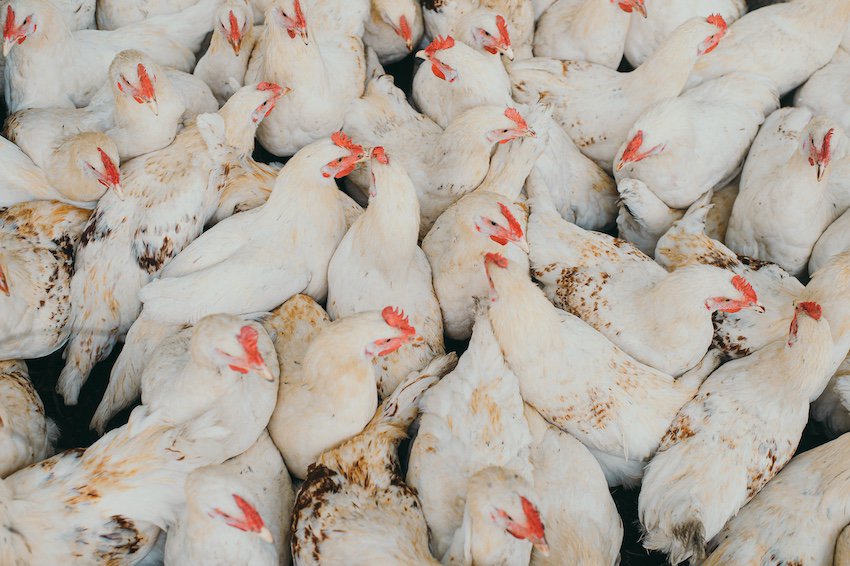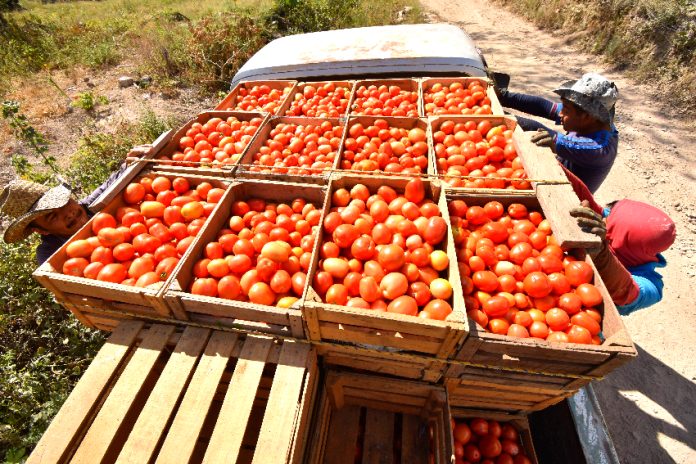¡Buen provecho y salud! (Bon appétit and cheers!)
Mexico’s agricultural and agro-industrial exports brought in more revenue in 2023 than any previous year, according to preliminary data from the Bank of Mexico.

The value of agri-food exports — a category that includes big-earning beverages such as beer and tequila — hit a record high of US $51.87 billion in 2023, a 3.9% increase compared to 2022.
Thus, Mexico’s agri-food industry recorded export growth for a 14th consecutive year, even as drought afflicted a large portion of national territory. Agri-food exports accounted for 8.7% of Mexico’s total exports in 2023, which exceeded $593 billion.
Meanwhile, agri-food imports declined ever so slightly (0.07%) to $44.29 billion, leaving Mexico with an agri-food trade surplus of just under $7.58 billion in 2023, a 35.3% increase compared to the 2022 surplus. It was the ninth consecutive year that Mexico had an agri-food trade surplus.
Agriculture Minister Víctor Villalobos Arámbula noted in a statement that 2023 was the first year that Mexico’s agri-food exports exceeded $50 billion. A decade earlier in 2013, agri-food exports were worth $24.4 billion, meaning that they increased 113% in the space of a decade.
Villalabos said that agri-food exports contribute to economic dynamism in Mexico as they stimulate job creation and generate foreign currency earnings.
Which agri-food products brought in the most revenue?
It’s no secret that Mexican beer is popular among consumers all over the world.
That fact is clear to see in the agri-food export data, as cerveza mexicana generated revenue of $6.16 billion in 2023, more than any other product in the category. The value of beer exports rose 2.2% compared to 2022.

The next biggest earner was tequila/mezcal with the two agave spirits — lumped together in the Bank of Mexico data — bringing in just under $4.3 billion in export revenue, an increase of 1.6% compared to the previous year.
Rounding out the top five were:
- Tomatoes: $3.04 billion (up 13.5% compared to 2022).
- Avocados: $3.03 billion (down 8.8% in annual terms).
- Bakery products: $2.64 billion (up 13%).
The Ministry of Agriculture and Rural Development noted that the value of live beef cattle exports rose 63.1% in 2023, the highest percentage terms increase of any agri-food product. The total value of such exports was $1.11 billion.
The next biggest percentage term increases were for:
- Coffee, tea and mate – 36.9%.
- Grapes and raisins – 35.7%.
- Pickled vegetables – 22%.
- Salsas, seasoning and condiments – 16.7%.
The biggest market for Mexican agri-food exports is the United States, but Mexico sends its products all over the world. Corona beer, for example, is exported to 180 countries, according to AB InBev, the Belgian multinational that owns the brand.
What were Mexico’s top agri-food imports?
In 2023, Mexico imported yellow corn worth US $5.87 million, an increase of 1.3% compared to 2022. Most of the yellow corn – which is widely used in Mexico as animal fodder – came from the United States, Mexico’s top trade partner.
Mexico’s next biggest agri-food imports were:
- Soy beans: $3.65 billion (down 11.5% from 2022).
- Pork: $2.76 billion (up 4.2% in annual terms).
- Wheat: $1.8 billion, (down 14.9%).
- Poultry: $1.59 billion (8.2%).
Agriculture consultancy Grupo Consultor de Mercados Agrícolas (GCMA) said in late December that Mexico imported a record high of 37.44 million tonnes of grains and oil producing plants in the first 11 months of 2023, an 8.8% increase compared to the same period of 2022. Widespread drought in Mexico was the main reason for the increase.
With reports from El Economista
